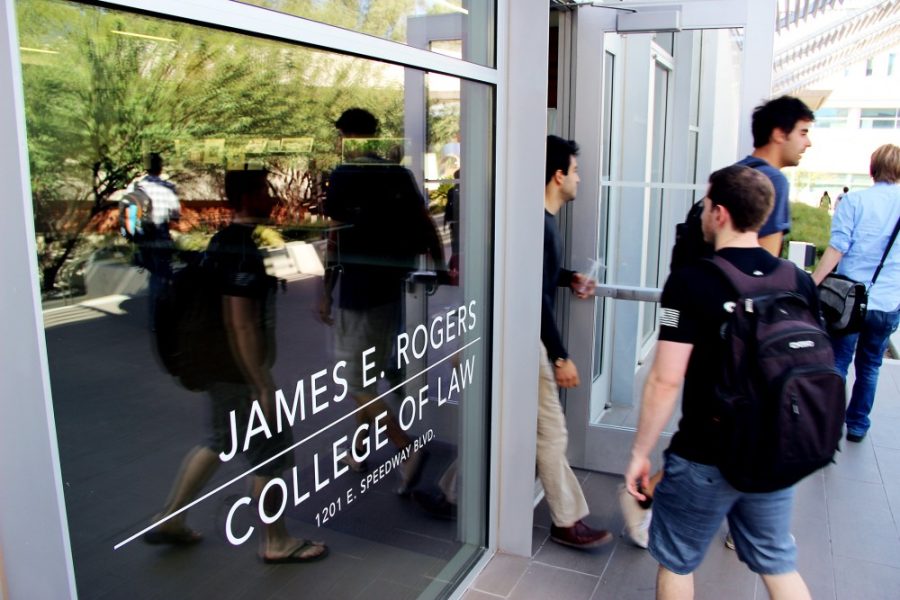Two law professors are jointly suing the Department of Homeland Security for an alleged violation of the Freedom of Information Act.
Derek and Jane Bambauer, professors at the James E. Rogers College of Law, and American Civil Liberties Union attorney James Lyall believe they are holding the biggest government agency in the U.S. accountable for its actions, according to Derek Bambauer.
Under the Freedom of Information Act, anyone can request certain information from the government. The goal of the law, Derek said, is to let the public know what the government is doing and hold it accountable for what it does.
The U.S. Border Patrol at the U.S. Customs and Border Protection agency is failing to comply with the FOIA regulations on responses to public requests for information, Derek Bambauer said.
In early January, Derek Bambauer, Jane Bambauer and Lyall requested certain information regarding policies, training and procedures and the data that comes out of the Border Patrol’s use on roving patrols and checkpoints, Derek Bambauer added.
The request went unanswered. Under the FOIA, agencies have to respond to requests within a certain period of time: In this case, Derek Bambauer said, the U.S. Border Patrol had 20 days to reply.
“They can say, ‘Yes,’ ‘No,’ ‘We need more time,’” Derek Bambauer said. “They just need to reply.”
When they did not hear back from the U.S. Border Patrol, they decided to move further and appeal, which also has a 20-day response period. Again, they did not receive a response.
“Given that we submitted a request and they didn’t respond at all,” Jane Bambauer said, “the next step to be taken under the FOIA is to go ahead and sue and demand that they respond to us, preferably by releasing the records.”
Jane Bambauer added that she and her team have evidence the Border Patrol conducts some operations as if it does not have to comply with the law, and that it has its own internal practices and rules.
A second-year College of Law student said she had a questionable run-in with U.S. Border Patrol officers in 2010, on her drive back from San Diego, Calif., to Tucson.
The student said that when she was driving through a standard U.S. Border Patrol checkpoint, the K9 unit detected drugs in her car.
The student and her two sisters were pulled over and interrogated, and ended up staying at the checkpoint for more than three hours.
“They went through everything I had in my car,” the student said. “They took out all my luggage, went through every single item in my luggage. The dog was climbing all over my car, he broke my console, things, an item of luggage and more.”
Jane Bambauer, Derek Bambauer and Lyall had hoped to get data on how effective K9 dogs are when detecting drugs as part of their request to U.S. Customs and Border Protection.
“We feel that their decision to not respond is just an example of their noncompliance,” Jane Bambauer said.
Derek said they are confident that the statute under the FOIA gives them the right to the information they are requesting. He added that it’s unfortunate the trio had to sue the DHS to get the information, but they are confident the DHS will give the them what they are requesting.
“This is obviously an agency that has tremendous impact on everyone who resides in Arizona, but it’s also an agency that is really not transparent in any way,” Derek Bambauer said. “It’s both been increasing in power and decreasing in transparency.”








